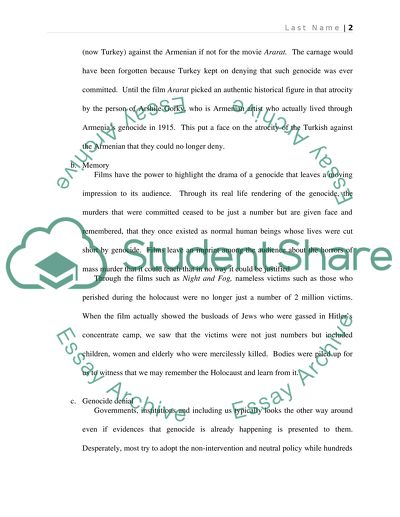Cite this document
(“Final Exam: Human rights in Film Essay Example | Topics and Well Written Essays - 1500 words”, n.d.)
Retrieved from https://studentshare.org/history/1459077-final-exam-human-rights-in-film
Retrieved from https://studentshare.org/history/1459077-final-exam-human-rights-in-film
(Final Exam: Human Rights in Film Essay Example | Topics and Well Written Essays - 1500 Words)
https://studentshare.org/history/1459077-final-exam-human-rights-in-film.
https://studentshare.org/history/1459077-final-exam-human-rights-in-film.
“Final Exam: Human Rights in Film Essay Example | Topics and Well Written Essays - 1500 Words”, n.d. https://studentshare.org/history/1459077-final-exam-human-rights-in-film.


